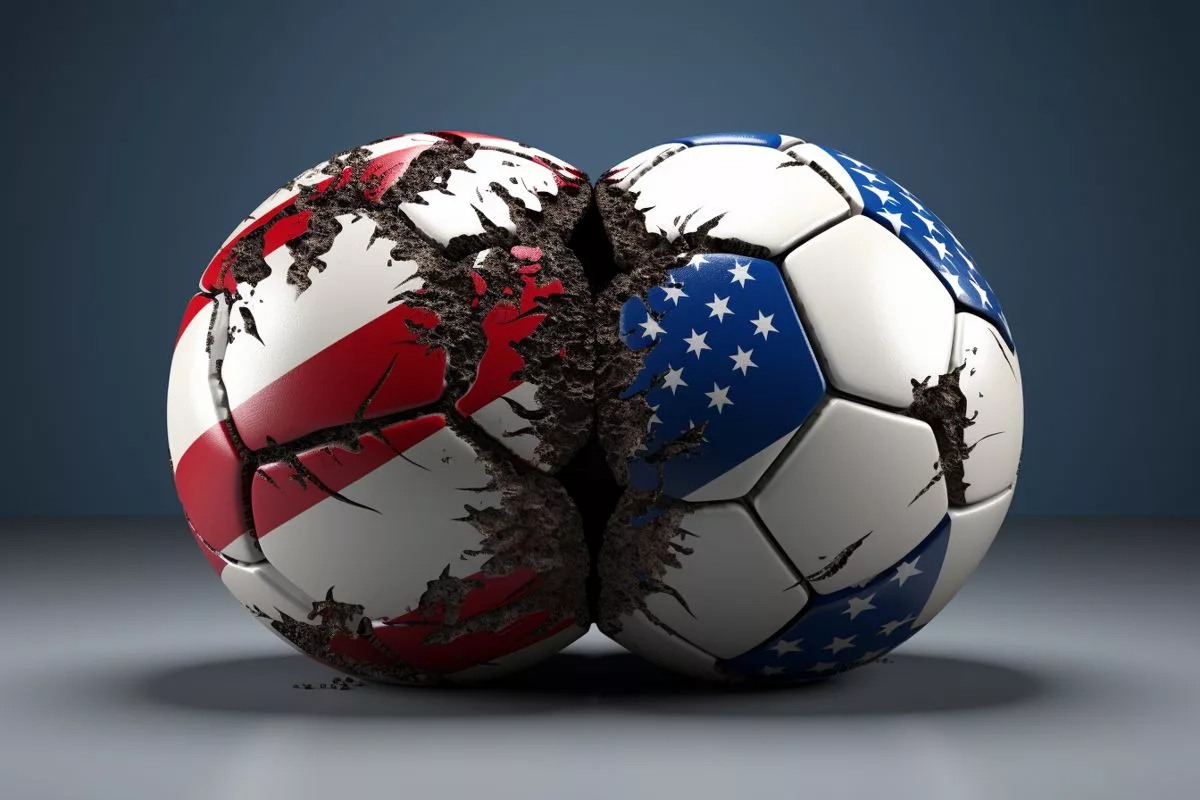Exploring Ethnic Disparities in Sports delves into the racial tensions present in the Kaizer Chiefs football team. Football analyst Siphiwe Mkhonza explains that players tend to group with those they feel comfortable with, intensifying the divisions within the team. These divisions have been exacerbated by the team’s lack of wins, causing ethnic tensions to come to the forefront. Mkhonza highlights the importance of effective leadership that encourages diversity and prevents it from turning into a source of conflict.
Exploring Ethnic Disparities in Sports: A Deep-dive into Kaizer Chiefs. Recent revelations have highlighted growing racial discord within Kaizer Chiefs. Siphiwe Mkhonza, a renowned football analyst, probes into the details of these ethnic differences, revealing that players tend to group with those they feel comfortable with, intensifying the divisions within the team. The paucity of wins has exacerbated the tensions and conflicts within the team, bringing these divisions to the fore.
Section 1: Team Dynamics and Racial Tensions
In the dynamic landscape of sports, the synergy within a team is crucial in procuring wins. This reality is well understood by the South African football squad, Kaizer Chiefs. However, recent revelations have highlighted growing racial discord within the team, which seems to be taking a toll on their unity.
Siphiwe Mkhonza, a renowned football analyst and erstwhile player for Kaizer Chiefs, probes into the details of these ethnic differences. According to Mkhonza, the problem’s root seems to stem from a perceived segregation among the black and coloured ethnic players. These rifts have been further intensified by the disciplinary issues that have dogged the team. Complicating matters are claims of bias from the Chiefs’ administration towards the black ethnic players, leading to disgruntlement among the coloured players.
Mkhonza’s observations reveal that players naturally tend to group with those they feel comfortable with, as a camaraderie develops among them. However, these divisions have become markedly evident due to the team’s underwhelming performance recently. Ironically, these ethnic divisions are an offshoot of the problem and not the root cause. The paucity of wins has exacerbated the tensions and conflicts within the team, thereby bringing these divisions to the fore.
Section 2: The Changing Face of Team Dynamics
During Mkhonza’s stint with the Amakhosi from 2004 to 2007, there were no such racial issues, despite the team boasting a diverse mix of players. He credits this to the team’s continuous victories on the field, which sparked a sense of unity and shared objective among the players. The present scenario, however, stands in stark opposition. It has been marred by a trophy drought since 2015, which could potentially be attributing to the change in team dynamics.
The former defender shares valuable insights into the team’s kinship during his tenure with the Chiefs. Players like Rowen Fernandez, Shaun Bartlett, Fabian McCarthy, and goalkeeper Emile Baron, while socially grouping together, remained an essential part of the team on the field. This healthy differentiation between personal and professional lives helped sustain the team’s unity. This indicates that the existing racial tensions could potentially be a fallout of their struggles on the field.
Section 3: The Impact of Performance on Team Dynamics
In the 2004/05 season, Mkhonza moved to the Chiefs from Golden Arrows, bagging five cups, including an electrifying final day win in May 2005. Drawing a comparison to the current predicament, it becomes apparent how the team’s performance greatly influences team dynamics.
In the world of football, racial tensions have often been an unpleasant truth. The situation within Kaizer Chiefs serves as another stark reminder of this unfortunate problem. Nonetheless, Mkhonza’s viewpoint provides significant insights into the complicated relationship between team dynamics, performance, and racial tensions. His commentaries underscore the importance of effective leadership that not only encourages diversity but also ensures that it does not turn into a source of conflict.
In essence, the situation within Kaizer Chiefs provides a snapshot of the wider racial tensions inherent in sports. While the club is currently wrestling with these issues, it’s essential to recall the times when diversity propelled their wins, rather than creating divisions. The scenario is cyclical, where mediocre performance fuels racial tensions, which in turn impacts the team’s performance. Nevertheless, with robust management, the team can hopefully shatter this vicious cycle and revert to their glory days.
1. What is the root cause of racial tensions in Kaizer Chiefs according to Siphiwe Mkhonza?
According to football analyst Siphiwe Mkhonza, the root cause of the racial tensions in Kaizer Chiefs seems to stem from a perceived segregation among the black and coloured ethnic players. These rifts have been further intensified by the disciplinary issues that have dogged the team. Claims of bias from the Chiefs’ administration towards the black ethnic players have also led to disgruntlement among the coloured players.
2. How have recent disciplinary issues affected team dynamics in Kaizer Chiefs?
Recent disciplinary issues have intensified the ethnic divisions within the team. Players tend to group with those they feel comfortable with, and these divisions have become markedly evident due to the team’s underwhelming performance recently.
3. Did Kaizer Chiefs experience racial tensions when Siphiwe Mkhonza was playing for them?
During Siphiwe Mkhonza’s stint with Kaizer Chiefs from 2004 to 2007, there were no such racial issues, despite the team boasting a diverse mix of players. Mkhonza credits this to the team’s continuous victories on the field, which sparked a sense of unity and shared objective among the players.
4. How did the team’s performance impact team dynamics during Siphiwe Mkhonza’s tenure with Kaizer Chiefs?
During Mkhonza’s tenure with Kaizer Chiefs, the team’s performance greatly influenced team dynamics. Players like Rowen Fernandez, Shaun Bartlett, Fabian McCarthy, and goalkeeper Emile Baron, while socially grouping together, remained an essential part of the team on the field. This healthy differentiation between personal and professional lives helped sustain the team’s unity.
5. What is the importance of effective leadership in managing diversity in sports teams?
Effective leadership is crucial in managing diversity in sports teams. Leaders should not only encourage diversity but also ensure that it does not turn into a source of conflict. In the case of Kaizer Chiefs, Mkhonza highlights the importance of robust management to shatter the vicious cycle of mediocre performance fueling racial tensions, which in turn impacts the team’s performance.
6. Is the situation in Kaizer Chiefs unique, or is it common for sports teams to experience racial tensions?
Unfortunately, racial tensions in sports are not uncommon. The situation within Kaizer Chiefs serves as another stark reminder of this unfortunate problem. Nonetheless, understanding the complicated relationship between team dynamics, performance, and racial tensions can help teams address and overcome these issues.








